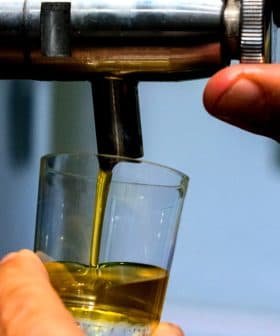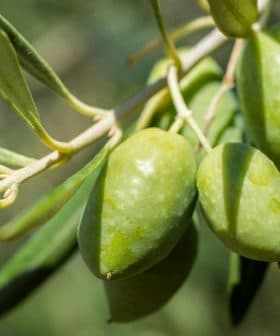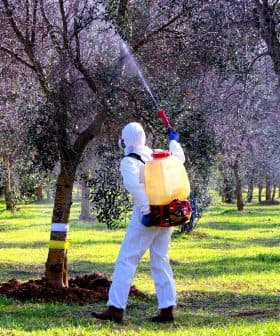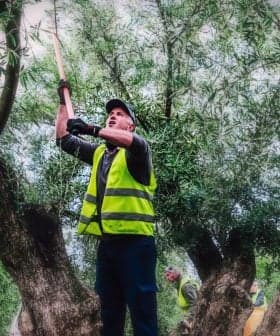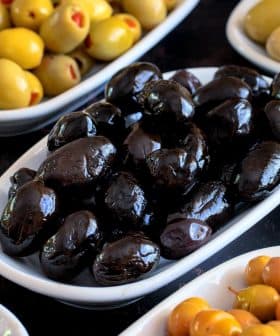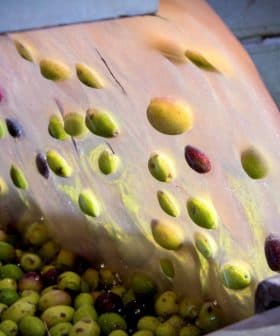Spain's Olive Oil Sector Launches Ambitious Research on Xylella
Xylella fastidiosa is a serious concern for Spain's olive oil sector and its interprofessional body is supporting research efforts to fight it.
The Spanish Olive Oil Interprofessional association is collaborating with Spain’s National Institution for Research and Agrarian Food Technology to conduct a three-year research project aimed at controlling and eradicating Xylella fastidiosa, a pathogen affecting olive groves. The project includes six research lines focusing on different aspects of the pathogen, such as its behavior, propagation, and impact on olive trees, with the goal of developing effective strategies to minimize its risks.
The Spanish Olive Oil Interprofessional association has partnered with several institutions to complete an ambitious research project that will study how to control and eradicate Xylella fastidiosa, an emerging pathogen that has become one of the olive oil sector’s main concerns.
Spain’s National Institution for Research and Agrarian Food Technology (INIA) is collaborating with the Interprofessional in the effort.
INIA acts as a liaison between various research groups investigating Xylella fastidiosa. This has resulted in the opening of six new research lines that address the problem from many angles which aim to develop an integrated strategy that can provide an ample spectrum response to minimize the risks the pathogen poses to Spain’s olive groves.
See Also:Articles on Xylella
This comprehensive approach proposes to generate knowledge about Xylella fastidiosa’s behavior, variables, propagation through vectors, and control of the insects responsible for its dissemination to design effective strategies that can put a halt to its expansion. This includes the identification of the varieties of olive trees that appear to be more tolerant or resistant to Xylella.
Xylella fastidiosa is spread through insects that feed themselves from the xylem in plants. It multiplies within the vascular system to the point it can clog it and obstruct the flux of raw sap, mainly water and mineral salts, provoking symptoms related to hydric stress and lack of nutrients that range from wilt to the death of the plant.
Different kinds of plants, mostly woody species as olive, nut, coffee, or almond trees can host Xylella fastidiosa, a bacterium with many genotypes that manifests itself differently depending on its host plant. No effective treatments have yet been identified, except for the control and eradication of the plants infected and the insects that propagate it. This makes Xylella fastidiosa a very unpredictable menace, not to mention that it is also difficult to isolate and reproduce in laboratories, which makes its investigation challenging.
The three-year-long research project’s six lines of investigation and institutions in charge are:
- Analysis of risks based on the regional behavior of Xylella fastidiosa in different olive grove zones throughout Spain, considering different climates, olive varieties and cultivation systems. This will help create guides to optimize eradication programs and the control of potential vectors (Valencia’s Institute of Agrarian Investigations – IVIA.)
- Diagnosis, genetical structure and host plants of Xylella fastidiosa found in Spain, mainly in areas with olive trees, to develop new diagnostic techniques (Spanish National Research Council – CSIC.)
- Pathogenesis of the Xylella genotypes isolated in Spain with the objective of better understanding the effects of olive tree infections and their degree of aggressiveness (University of Gerona.)
- Characterization of the infectious process and how each Xylella genotype acts in the main varieties of olive trees and wild olive trees, with a view to creating an olive tree germplasm bank and exploring how each variety behaves in situ (Institute of Agroenvironmental and Water Economy Research (INAGEA) of the University of the Balearic Islands.)
- Biology and ecology of potential vectors transmitting Xylella fastidiosa to determine their role in the epidemiology and disease control in olive trees (Institute of Research and Agrofood Technology (IRTA.)
- Scientific bases for the transfer and communication of diseases caused by Xylella fastidiosa in olive trees (Institute of Agrarian, Fishing, Food and Ecological Production’s Research and Training of the Junta de Andalucía (IFAPA.)
In Europe, Xylella fastidiosa first appeared in 2013 in Southern Italy, where it has proven very difficult to control. In Spain, it was first detected in 2017 in the Balearic Islands, where its presence in olive groves has been identified in Majorca, Menorca, and mainly Ibiza.
Alicante was the first province in continental Spain where Xylella was identified in June 2017. In April 2018 Xylella fastidiosa was for the first time identified in olive trees within continental Spain, in Madrid, where three hundred trees have been eliminated. According to Blanca Landa, one of Spain’s top experts on Xylella, these outbreaks do not appear to be related.
Teresa Pérez, the Interprofessional’s manager, affirmed the organization has always evidenced a strong commitment with the advancement of innovation in all subjects where knowledge is critical to Spain’s olive oil sector.
“An average of 11 percent of our budget is devoted to R&D,” Pérez told Olive Oil Times, adding that Xylella has been a priority for Spain’s olive oil sector and the reason for which the Interprofessional had been for some time in the search of solid research projects like this one.


